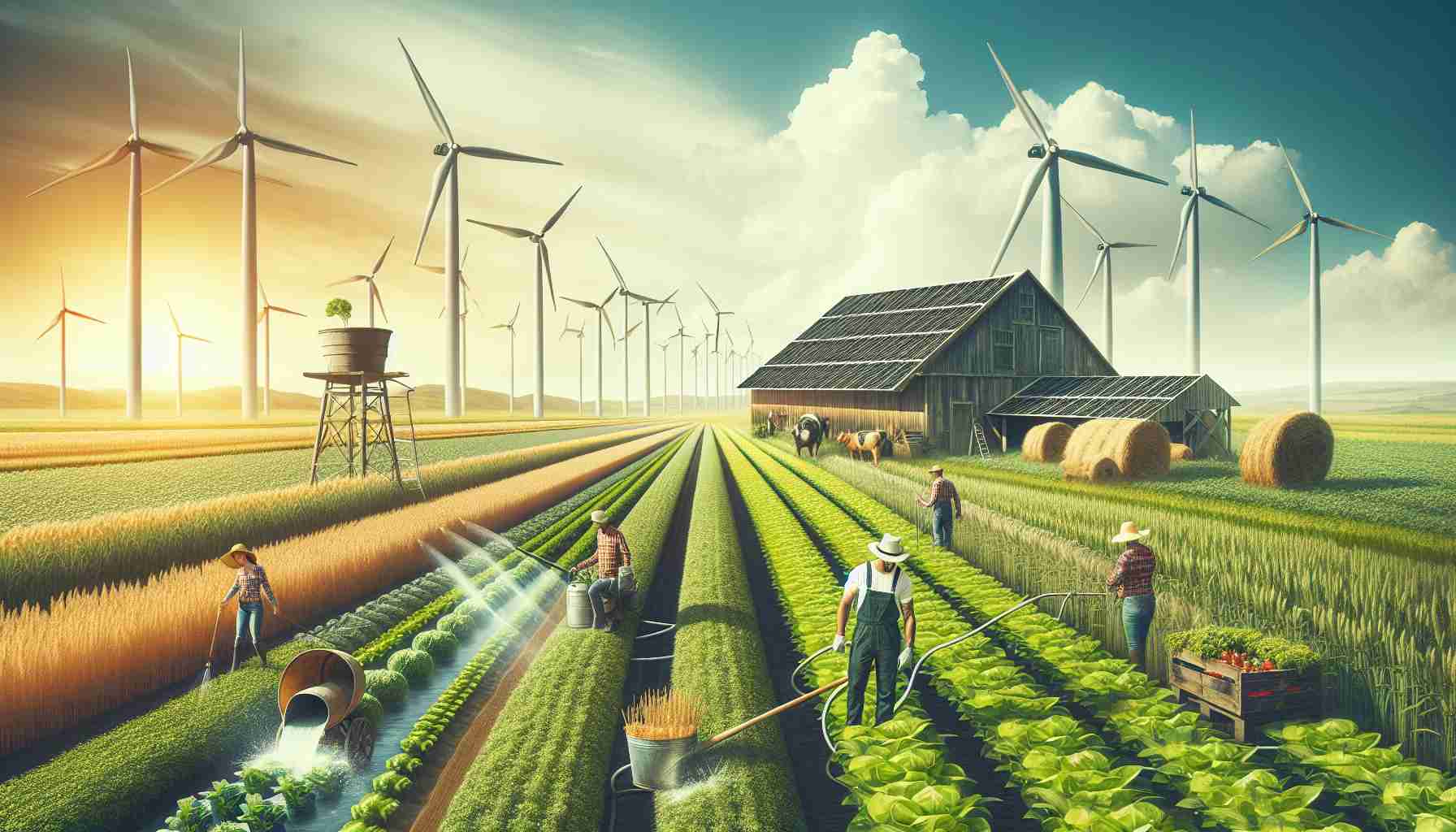Sustainable farming practices have become an essential focus for farmers around the world. As societies continue to grapple with the effects of climate change and environmental degradation, it is imperative to adopt methods that reduce our ecological footprint and promote a greener future.
One innovative approach gaining momentum is regenerative agriculture. Regenerative agriculture goes beyond sustainability, aiming to restore and rejuvenate the land rather than simply preserving it. This holistic approach focuses on building healthy soil, increasing biodiversity, and enhancing ecosystem services. By utilizing techniques such as cover cropping, rotational grazing, and organic waste composting, regenerative farmers actively regenerate their farmland, mitigating the impacts of conventional agricultural practices.
Another key aspect of sustainable farming is precision agriculture. With the advancements in technology, farmers can now employ data-driven strategies to optimize crop production and reduce resource wastage. Utilizing remote sensing, soil mapping, and variable rate technology, precision agriculture enables farmers to apply fertilizers, pesticides, and water precisely where needed, minimizing unnecessary usage. This not only increases efficiency and productivity but also reduces the negative environmental impacts associated with chemical runoff and overuse of resources.
Furthermore, agroforestry is a sustainable farming practice that integrates trees and shrubs into agricultural systems. By creating diverse and layered landscapes, agroforestry provides numerous benefits such as natural pest control, carbon sequestration, and improved soil fertility. The trees and crops in these systems work synergistically, creating a balanced and mutually beneficial ecosystem.
In conclusion, sustainable farming practices are vital for cultivating a greener future. Regenerative agriculture, precision agriculture, and agroforestry are just a few examples of the innovative approaches that farmers are adopting worldwide. By implementing these practices, we can mitigate the detrimental effects of conventional farming, promote environmental stewardship, and strive towards a more sustainable and resilient agricultural system.
The sustainable farming industry is projected to experience significant growth in the coming years. According to market forecasts, the global regenerative agriculture market is expected to reach $62.1 billion by 2026, with a compound annual growth rate (CAGR) of 13.5% during the forecast period. The increasing awareness of the environmental benefits of regenerative agriculture, along with the rise in demand for organic and sustainable products, is driving this market growth.
Similarly, the precision agriculture market is expected to reach $10.2 billion by 2025, with a CAGR of 13.0% during the forecast period. The adoption of precision agriculture technologies by farmers, such as drones, sensors, and crop management software, is expected to boost productivity, reduce costs, and minimize the environmental impact.
Agroforestry, too, has gained attention as an effective and sustainable farming practice. It is estimated that the global agroforestry market will expand at a CAGR of 9.3% from 2020 to 2027. The growing awareness about the benefits of agroforestry, including improved soil health, biodiversity conservation, and carbon sequestration, is fueling the market growth.
Despite the positive outlook, the sustainable farming industry also faces challenges. One such challenge is the initial cost of implementing these practices. While regenerative agriculture, precision agriculture, and agroforestry have long-term benefits, farmers may face financial barriers when transitioning from conventional practices. Access to capital, technical expertise, and supportive policies are among the barriers that need to be addressed to facilitate wider adoption.
Another issue is the lack of awareness and education among farmers. Many farmers may not be familiar with the latest sustainable farming practices, or they may be hesitant to change their established methods. Providing training, information, and resources to farmers is crucial in overcoming these barriers and promoting wider adoption of sustainable practices.
Overall, the sustainable farming industry holds great promise for addressing the environmental challenges faced by agriculture. With continued innovation, investment, and collaboration between stakeholders, sustainable farming practices can play a significant role in building a greener and more resilient future.







